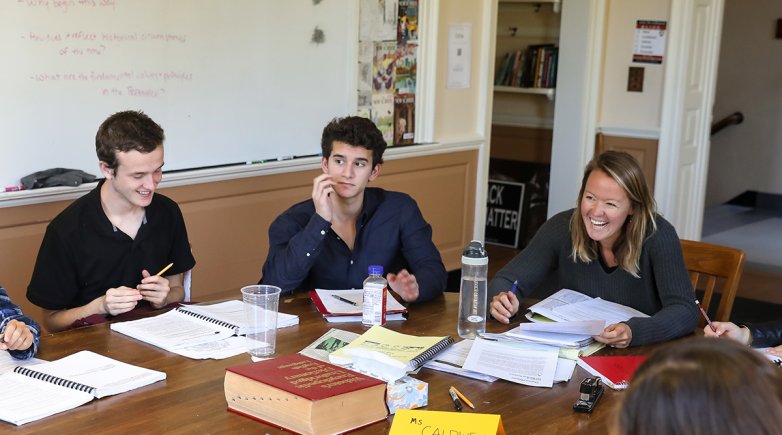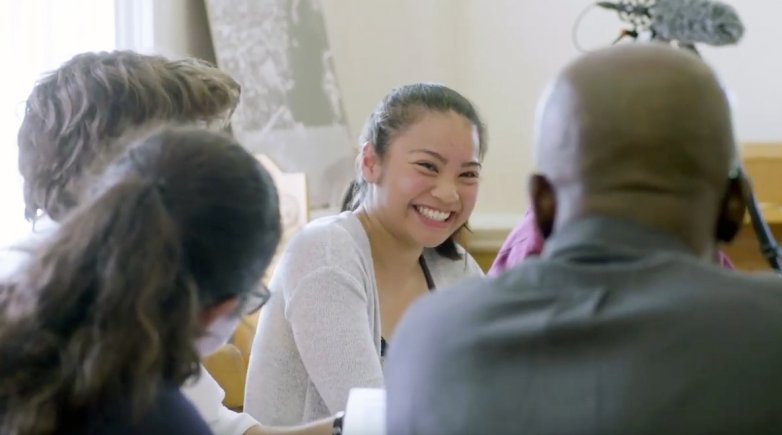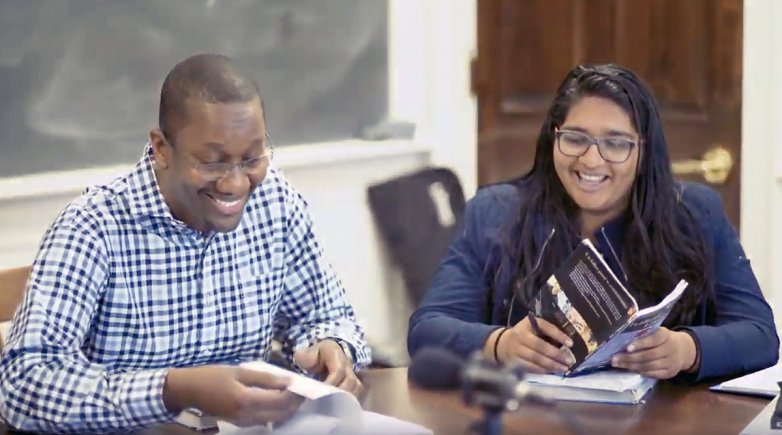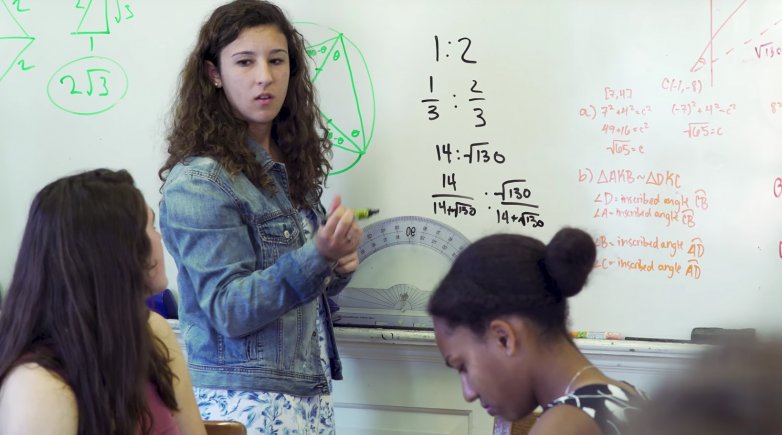American history via Harkness
Instructor Alexa Caldwell's History 410 class travels back in time to analyze pivotal moments in the formative years of the United States.
Revolution, independence and the growing pains of a young nation; all themes covered in History 410: United States History, Colonial Origins to 1861. This mainstay course of the Exeter curriculum takes students on a chronological journey through the formative years of the United States of America.
On a quintessential New England autumn day in a town synonymous with early U.S. history, Exeter students crunch through a layer of freshly fallen leaves along the path leading to the Academy Building and Instructor in History Alexa Caldwell’s classroom.
A month into the term, the course’s timeline coincides with a precarious moment in the nascent country’s history. Led by revolutionary Daniel Shays, thousands of farmers engaged in months-long protests over debt and tax collection practices. Known as Shays’ Rebellion, the uprising culminated in an armed march on government buildings in Springfield, Massachusetts, in January 1787, resulting in dozens of casualties.
Central to the day’s discussion are writings from Thomas Jefferson, who watched the “troubles of the eastern states” unfold from afar while serving as the ambassador to France. In a letter penned to James Madison, Jefferson cites the “evil” of rebellion. Seated at the Harkness table, Thomas Matheos ’20 offers his interpretation of Jefferson’s comments by saying the future president saw the uprising as a “necessary evil.”
“I think Jefferson’s point was, even though rebellions can be violent, they lead to good because it enables the government to further realize the needs of the citizens,” he says.
Osiris Russell-Delano ’21 wonders aloud about inconsistencies in Jefferson’s statement.
“I question, when Jefferson says, ‘this uneasiness has produced acts absolutely unjustifiable,’ but then later says, ‘a little rebellion now and then is a good thing.’ Is that a contradiction?”

Stephen McNulty, an upper from Massachusetts, believes Jefferson is resolute in his aversion to Shays’ Rebellion, and what may be seen as a contradictory statement is actually a recommendation of leniency on the participants.
“He’s essentially saying that rulers should not be too harsh in discouraging protest,” McNulty says.
“But they were harsh,” Bizzie Lynch ’21 retorts, citing the aftermath of the rebellion that saw serious consequences for Shaysites, including hangings. Lynch continues, suggesting the apparent inconsistencies in Jefferson’s letter highlight a larger issue of the day: How leaders should curb revolts by the populace in a country whose foundation was built on exactly that.
“Do you think the leaders are becoming the people they used to hate, or are they just trying to keep alive the republic they fought so hard for?” Lynch puts out for discussion.
Ellie Griffin, an upper and North Carolina native, believes uprisings of the time have less to do with those in power and more to do with the revolutionary mindset of American citizens of the era.
“The idea that you can rebel against a system you don’t agree with is still continuing, and the people still view it as when they rebelled against England,” Griffin responds.
Caldwell interjects, guiding the students back to an important and still unanswered question.
“Why does Jefferson think ‘a little rebellion is good’ even if he doesn’t like rebellion?” she asks.
“Improvement and democracy being molded to the people in it,” Lynch says.
“It gets people involved in politics instead of ignoring it and leaving decisions up to the politicians,” Leah Delacruz ’20 adds.
“These are the questions we’re going to answer when we look at the constitution,” Caldwell says, previewing the topic for the next class meeting. “To what extent is the Constitution reflecting the value of the revolution in terms of distribution of power?”
Quelled by the Massachusetts State militia, Shays’ Rebellion highlighted the U.S. government’s inability to react to such uprisings and prompted 55 delegates to gather in Philadelphia for the Constitutional Convention.



